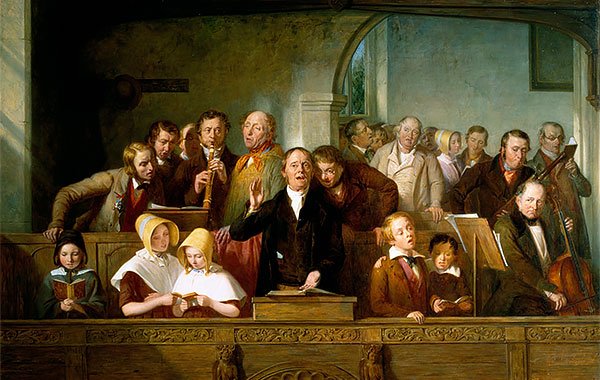
Take Up & Read
Search By Category
- Abraham 1
- Affliction 2
- Anthropology 1
- Atheism 1
- Baptism 1
- Biblical Counseling 7
- Calvinism 2
- Canon 2
- Christian Life 16
- Church Discipline 2
- Church History 4
- Confessionalism 3
- Confessions of Fatih 4
- Covenant Theology 4
- Culture 3
- Devotional 36
- Doxology 4
- Election 2
- Evangelism 6
- Exegetical Studies 6
- Family Worship 2
- Fear of Man 1
- Genesis 1
- Global Missions 1
- God 3
- God's Sovereignty 2
- Government 1
- Hamartiology 1
- Hermeneutics 9
- Historical Books 1
- History 1
- Incarnation 1
- Jesus Christ 4
- John Bunyan 1
- Justification 2
- Liturgy 9
- Old Testament 1
- Origins 1
- Pentateuch 1
- Podcast 32
- Prayer 2
- Psalm 119 34
- Reformation History 1
- Repentance 1
- Resurrection 1
- Romans 8:28 1
- Sacraments 2
- Sermon Manuscript 10
- Sin 3
- The Gospels 1
Three Ways to Sing the Psalms
We, as reformed, confessional Christians, argue that the Word of God is a sufficient rule for all of faith and life, and that includes our music. Our Triune God has given us a hymnbook, smack dab in the middle of our Bibles, and its contents should make up the majority of our worship.
Sing The Lord’s Prayer
This prayer is recorded in two of our Gospel accounts, both in Matthew and in Luke (11:2-4). The four Gospels being the first recognized books of the New Covenant[1], the early church recognized the importance of the Lord’s Prayer
R&C Podcast: E3 Family Worship PT 2
We're back! Join Nick and John as they (re)launch the Reformed & Confessional Podcast!In this episode, we discuss Family Worship from a biblical and confessional perspective (Deuteronomy 6:4-9; Psalm 78:1-8; Ephesians 5:25-27).
Grace and Truth - Psalm 119:29 (5 Min Read)
And observe, the Psalmist doesn’t ask to be put near other Christians or to have false people removed from his sight, in order to be obedient. Instead, he recognizes that obeying the Lord is a matter of one's own heart, not one's circumstances.
A Treatise On Exclusive Psalmody Part 5: What Should We Sing? (8 Min Read)
In the Old Covenant, we see the temple and tabernacle as the special dwelling place of God among his people. “As symbols or types, these institutions pointed to a future fulfillment. That fulfillment is found in Jesus Christ, the full and final manifestation of God’s presence with His people.”





